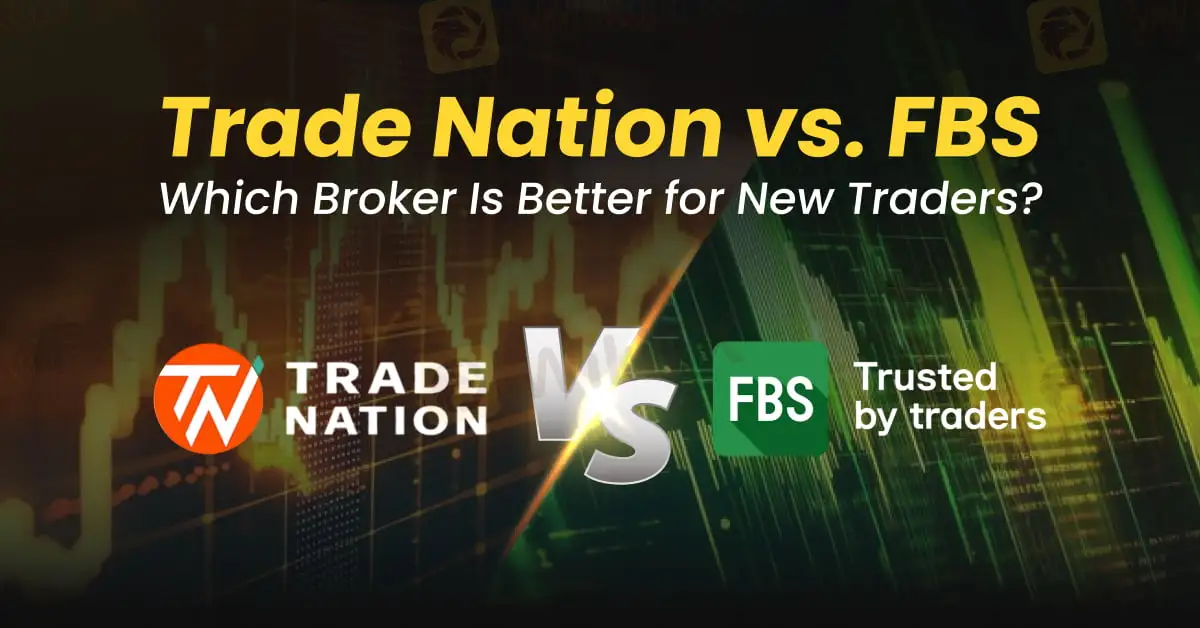Trade Nation vs. FBS: Which Broker Is Better for New Traders?
Abstract:If you're new to trading, choosing the right broker can feel overwhelming. Two popular choices, Trade Nation and FBS, offer very different experiences. This comparison breaks down which is better suited for beginners, based on ease of use, safety, costs, and support.

If you're new to trading, choosing the right broker can feel overwhelming. Two popular choices, Trade Nation and FBS, offer very different experiences. This comparison breaks down which is better suited for beginners, based on ease of use, safety, costs, and support.

Trade Nation is designed with simplicity and safety in mind. Its regulated by strong authorities like the FCA in the UK and ASIC in Australia, while also holding offshore licenses in places like Seychelles and the Bahamas. Best of all, no minimum deposit is required to open an account. In some countries, like Malaysia and Indonesia, you can even start with as little as $0.50 or $1. This makes it very easy for new users to try trading without much risk.
FBS, by contrast, offers a wider range of features. It's regulated by ASIC and CySEC, but also uses an offshore license in Belize, which has looser rules. Its minimum deposit is $5, compared to Trade Nations no minimum requirement.
One of the biggest differences is leverage. Trade Nation limits leverage to 1:200 under major regulators, which helps protect beginners from large losses. FBS, however, offers up to 1:3000 leverage through its Belize license.

When it comes to trading costs, Trade Nation uses fixed spreads such as starting at 0.3 pips on EUR/USD, and charges no commission. This gives you more predictable costs, even when the market is moving fast. FBS uses floating spreads, starting from 0.7 pips, which can widen significantly during high volatility.

Both brokers support MT4, but Trade Nation also offers its own custom platform, TN Trader, which is clean, simple, and ideal for those just starting out. FBS supports MT5 and its own mobile app, which is more advanced and better suited for traders with strategic experience.
In terms of what you can trade, FBS offers over 550 trading instruments, including stock CFDs. However, it doesnt offer crypto. Trade Nation keeps things simpler, focusing on forex, commodities, and indices, with limited crypto access.
Customer support also plays a role. FBS offers 24/7 help in multiple languages, including Thai and Arabic, which is great for users in emerging markets. Trade Nations support is available 24/5, but only in English. While both are responsive, beginners who speak English may find Trade Nation more straightforward.
While both brokers have their strengths, Trade Nation is the better all-around option for most beginners. Its easy to start with, safer to use, and more transparent about the risks. FBS can be powerful in the right hands, but beginners should approach it with caution due to its high-risk leverage and offshore regulation.

Read more

Fed Holds Rates Steady! Yen Faces Growing Uncertainty
The Fed stays put but strikes a hawkish tone. The yen remains under pressure as market uncertainty deepens.

Is Your Money Safe with Libra Markets? Check Out Fast!
n this exposure episode, we will take you through the heinous game played by Libra Markets, an unregulated forex broker. Take a look at how people are facing issues regarding withdrawals.

Why You Should Keep Away from Tradehall?
Tradehall, a platform that has been gaining some attention online, but not always for the right reasons. If you're considering opening an account with this broker or want to know if Tradehall is legit, here are some facts you should know that might make you think twice.

CMCMarkets vs J.P. Morgan: Which One is Suitable for You?
CMC Markets and J.P. Morgan are both highly rated brokers, offering distinct advantages depending on the user's investment goals, platform preferences, and risk appetite. In this article, we comprehensively compare these two brokers based on basic information, regulatory compliance, leverage, trading platforms, account types, spreads and commissions, customer service, AI tools, recent updates, and more.
WikiFX Broker
Latest News
Danske Bank expects the European Central Bank to make its final interest rate cut in September.
Retirement Dreams Shattered: Don't Do This To Yourself!
EU Regulators Imposed Over €71M in Sanctions in 2024, ESMA Calls for Enforcement Convergence
No Regulation, Revoked Licence: Is Tradehall Safe to Use?
Philippines Sets Southeast Asia’s First Crypto Regulatory Framework
Tether Freezes $12.3 Million in USDT Over Money Laundering Concerns
MiCA Unlocks EU Crypto Market, but National Tensions Rise as Gemini and Coinbase Near Approval
FortuixAgent Review 2025: Is it Scam or Legit?
MetaTrader Support Ending July 2025: Update Now or Risk Losing Access
HYCM Broker Review 2025: A Comprehensive Overview
Rate Calc

